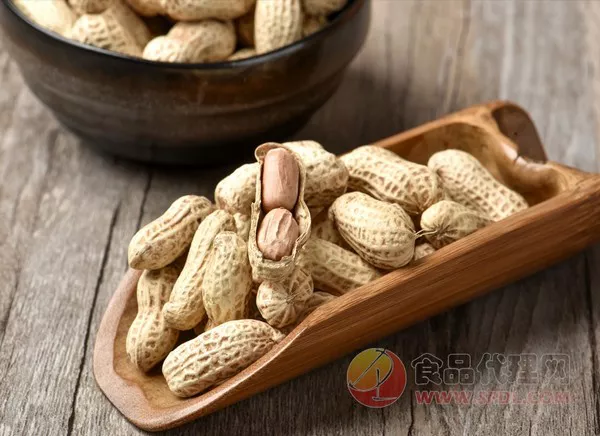Allergies have become increasingly prevalent in recent years, affecting millions of people worldwide. From seasonal allergies to food sensitivities, the discomfort and inconvenience associated with allergic reactions cannot be overstated. While there is no miracle cure for allergies, exploring natural remedies to alleviate symptoms has gained significant attention. In this comprehensive article, we delve into the world of tea and its potential to help manage and alleviate the discomfort of allergies.
The Science Behind Allergies
Before we delve into the potential of tea in managing allergies, it’s essential to understand the science behind allergic reactions. Allergies occur when the immune system mistakenly identifies a harmless substance, such as pollen or certain foods, as a threat. This triggers an immune response that leads to various symptoms, from sneezing and itchy eyes to more severe reactions like anaphylaxis.
Types of Allergies
There are various types of allergies, each with its unique triggers and symptoms. Understanding the type of allergies you or someone you know is experiencing is crucial to determine the most effective approach to managing them. Common types of allergies include:
Seasonal Allergies: These are often triggered by pollen from trees, grasses, and weeds. Symptoms may include sneezing, runny nose, and itchy eyes.
Food Allergies: Some individuals experience allergies to specific foods, with reactions ranging from mild hives to severe anaphylaxis.
Pet Allergies: Many people are allergic to pet dander, causing symptoms like sneezing and skin rashes.
Dust Allergies: Dust mites can trigger allergic reactions, leading to symptoms such as a stuffy nose and coughing.
Now that we have a foundational understanding of allergies, let’s explore how tea, a beloved beverage around the world, might offer some relief.
Tea and Allergies: A Natural Approach
Tea has been consumed for centuries and has long been associated with numerous health benefits. Among these potential benefits, researchers have recently started to investigate its role in managing allergies. While it’s not a cure, incorporating tea into your routine may help alleviate some of the symptoms associated with various allergies.
1. Green Tea and Allergies
Green tea, derived from the Camellia sinensis plant, is renowned for its antioxidant properties. These antioxidants, such as epigallocatechin gallate (EGCG), have been the focus of several studies exploring their potential to combat allergies.
One study published in the journal “Allergy, Asthma, and Immunology Research” found that green tea extracts could inhibit allergic reactions by suppressing the release of histamine, a compound responsible for allergy symptoms. The researchers noted that the EGCG in green tea displayed anti-inflammatory properties, which could be beneficial for those with allergies.
2. Black Tea and Allergies
While green tea is often in the spotlight for its health benefits, black tea should not be overlooked when discussing allergies. Black tea also contains antioxidants, albeit in different quantities and forms. Additionally, it contains compounds like theaflavins and thearubigins, which may have potential anti-allergic properties.
A study in the “Journal of Agricultural and Food Chemistry” suggests that black tea extracts could help reduce the production of immunoglobulin E (IgE), an antibody that plays a crucial role in allergic reactions. This reduction in IgE levels may translate to a decrease in the severity of allergies.
3. Herbal Teas and Allergies
Beyond traditional teas, herbal teas have their own unique properties that may aid in alleviating allergies. Certain herbs, such as chamomile, peppermint, and ginger, have been associated with anti-inflammatory and soothing effects. While not derived from the Camellia sinensis plant, these herbal infusions offer their own set of advantages for allergy sufferers.
Chamomile tea, for instance, contains chamazulene, which possesses anti-inflammatory properties. This may help reduce the inflammation associated with allergic reactions. Similarly, peppermint tea has menthol, which can act as a natural decongestant, providing relief for nasal congestion linked to allergies.
4. Tea Blends for Allergies
In recent years, specialized tea blends targeting allergies have gained popularity. These blends often combine different tea types, herbs, and spices to create a synergistic effect that may offer enhanced relief. Ingredients such as nettle, butterbur, and quercetin, known for their anti-allergic properties, are commonly featured in these blends.
Nettle tea, derived from the stinging nettle plant, contains compounds that may inhibit the release of histamine, similar to the action of antihistamine medications. This makes it a popular choice for those seeking a natural approach to managing allergies.
Butterbur, another ingredient often found in allergy-specific tea blends, has demonstrated the potential to reduce allergic symptoms, particularly in individuals with seasonal allergies. A study in “Phytomedicine” found that butterbur extract was effective in alleviating hay fever symptoms.
Quercetin, a flavonoid found in foods like apples, onions, and tea, is believed to have anti-allergic properties. While it can be consumed through a diet rich in quercetin-containing foods, some tea blends incorporate it to potentially enhance their allergy-fighting effects.
Allergies and Lifestyle
In addition to incorporating tea into your routine, there are several lifestyle changes and practices that can help manage allergies more effectively. These include:
Allergy-Proofing Your Home: Taking steps to minimize allergens in your living space, such as using air purifiers and allergen-proof covers for bedding, can significantly reduce exposure to allergens like dust mites and pet dander.
Dietary Changes: Identifying and avoiding specific foods that trigger allergies is crucial for those with food allergies. A consultation with an allergist can help pinpoint these triggers.
Medications and Allergy Shots: For severe allergies, allergists may recommend medications like antihistamines, decongestants, or in some cases, allergen immunotherapy (allergy shots).
Stress Management: High stress levels can exacerbate allergies. Incorporating stress-reduction techniques such as yoga, meditation, or deep breathing exercises into your routine may help.
Hydration: Staying well-hydrated is essential for overall health, and it can also help thin mucus secretions, making it easier to expel allergens.
Conclusion
In the ever-evolving world of allergy management, the potential benefits of tea in alleviating allergies are becoming increasingly apparent. Whether you prefer the earthy notes of green tea, the robustness of black tea, or the soothing properties of herbal infusions, there’s a tea for every palate and every type of allergies.
While tea can be a valuable addition to your allergy management toolkit, it’s important to remember that individual responses to tea may vary. What works well for one person might not have the same effect on another. As with any approach to health and wellness, it’s advisable to consult with a healthcare professional or allergist for personalized guidance and recommendations.
Incorporating tea into your daily routine may not provide an absolute cure for allergies, but it can offer a natural, holistic approach to managing symptoms and enhancing your overall well-being. By exploring the world of tea, you may find that a soothing cup of your favorite brew becomes your trusted ally in the battle against allergies.
As research into the relationship between tea and allergies continues, we can look forward to a more comprehensive understanding of how this ancient beverage can provide modern relief for those who contend with allergic reactions on a daily basis. Until then, raise your teacup and savor the potential benefits that tea has to offer in the ongoing journey to mitigate the discomfort of allergies.
[inline_related_posts title=”You Might Be Interested In” title_align=”left” style=”list” number=”6″ align=”none” ids=”2851,2789,2779″ by=”categories” orderby=”rand” order=”DESC” hide_thumb=”no” thumb_right=”no” views=”no” date=”yes” grid_columns=”2″ post_type=”” tax=””]



































